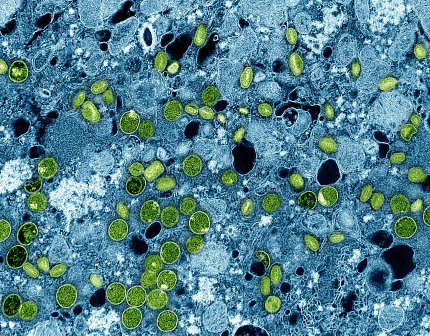Mpox Vaccine is Safe and Generates Robust Antibody Response in Adolescents

Photo: NIAID
An NIH-funded clinical trial of an mpox vaccine in adolescents found it was safe and generated an antibody response equivalent to that seen in adults, according to a planned interim analysis of study data. Adolescents are among the population groups affected by mpox in the current Clade I mpox outbreak.
Two types of the virus that causes mpox have been identified. Clade I is endemic in Central Africa and can cause severe illness. Clade II, endemic in West Africa, caused the global mpox outbreak that began in 2022 and tends to result in milder illness.
People with compromised immune systems, children and pregnant individuals are especially vulnerable to severe mpox regardless of the virus clade. A large proportion of people affected in the current Clade I outbreak in the DRC and other African countries are adolescents and children. The modified vaccinia Ankara-Bavarian Nordic (MVA-BN) vaccine is approved in several countries for the prevention of mpox and smallpox in adults, but insufficient data are available to support licensure for people younger than 18.
NIAID is sponsoring a mid-stage study in the U.S. to evaluate the safety and immune response generated by two doses of MVA-BN in adolescents aged 12-17 years, comparing outcomes to those in adults aged 18-50 years.
In a planned interim analysis, study investigators measured antibody levels two weeks after the second dose (study day 43) and monitored safety through 180 days after the second dose (study day 210). The analysis showed that the vaccine generated antibody levels in adolescents equivalent to those observed in adults at day 43 and found that the vaccine was well tolerated through study day 210.
The overall frequency of adverse events was comparable between the study groups. Reports of dizziness were more common in adolescents than adults, but similar to the frequency of dizziness reported when other vaccines are administered in adolescents. The authors underscored the need to evaluate the vaccine in younger children.
